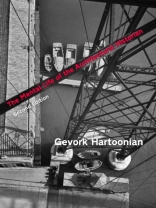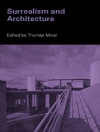Starting with the question concerning the discursive formation of architectural history, the chapters compiled in this book attempt to re-read the historiography of early modern architecture from the point of view of the theoretical work produced since the post-war era. Central to the objectives of the argument are the ways in which, firstly, architectural history differs from the traditions of art history, and, secondly, that the historical narrative works its autonomy through theoretical representation, the discursive flow of which is interrupted by the historian’s urge to support arguments with references to buildings, texts, drawings, and historical events. The historians discussed in this volume are those regularly addressed by most critics revisiting modern architectural history. Individual chapters are dedicated to N. Pevsner, H. R. Hitchcock, and S. Giedion, an economy of selection that is formative for a critical understanding of the canon established by these historians. Themes such as periodization, autonomy, and time are discussed, and the coda of the final chapter expands on the scope of "critical historiography" popularised by Kenneth Frampton and Manfredo Tafuri.
Gevork Hartoonian
Mental Life of the Architectural Historian [PDF ebook]
Re-Opening the Early Historiography of Modern Architecture, Second Edition
Mental Life of the Architectural Historian [PDF ebook]
Re-Opening the Early Historiography of Modern Architecture, Second Edition
Köp den här e-boken och få 1 till GRATIS!
Formatera PDF ● Sidor 227 ● ISBN 9781443865951 ● Utgivare Cambridge Scholars Publishing ● Publicerad 2014 ● Nedladdningsbara 3 gånger ● Valuta EUR ● ID 3371904 ● Kopieringsskydd Adobe DRM
Kräver en DRM-kapabel e-läsare












